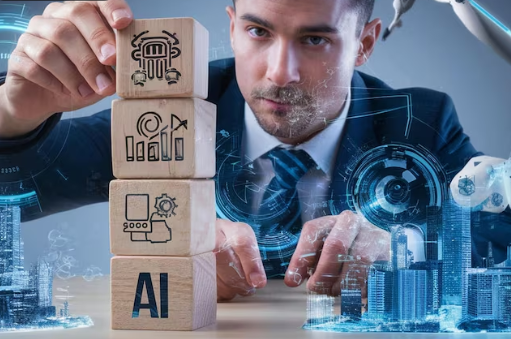At STL Digital, we recognize that enterprise marketing must evolve from calendar-driven campaigns to real-time, intelligent orchestration powered by AI for enterprise. Such transformation requires a solid digital transformation strategy, enabled by capable digital technology services, guided by experienced IT consulting, and supported with scalable IT services.
1. The Economic Case: Generative AI’s Value, from McKinsey
McKinsey’s landmark report, “The economic potential of generative AI: The next productivity frontier,” provides a data-rich foundation for why AI for enterprise is no longer optional for marketing: “Generative AI could add the equivalent of $2.6 trillion to $4.4 trillion annually across the 63 use cases we analyzed.”
Even more compelling: “About 75 percent of the value that generative AI use cases could deliver falls across four areas: customer operations, marketing and sales, software engineering, and R&D.”
This tells us that marketing—not just as a function but as a strategic engine—is central to where the AI value accrues.
2. Budget Realities: Gartner on the CMO Squeeze
Gartner’s data shows that marketing is under pressure to perform with fewer resources- In 2024, marketing budgets fell to 7.7% of overall company revenue, down from a pre-pandemic average of 11%, marking the lowest such share since 2021.
CMOs face a paradox: less budget, higher expectations. As Gartner’s Luke McIntyre says: “The new normal is that we just simply have less funding in marketing now… a reduced budget, but we’ve also got a strong expectation that we need to do more with less.”
This scenario renews the urgency for AI for enterprise—marketing needs smarter tools, not more spending.
3. Blueprint: What AI-Empowered Enterprise Marketing Looks Like
To unlock both economic potential and operational efficiency:
A. Unified Intelligence Layer
Centralize CRM, behavioral, and campaign data into an intelligence hub. AI for enterprise powers identity resolution and next-best-action logic.
B. AI-Driven Campaign Generation
Move from manual content curation to AI-fueled creation, optimizing messages, creative forms, and timing at scale.
C. Real-Time Orchestration Across Channels
Leverage AI to dynamically route campaigns—email, mobile, social—with context-aware personalization.
D. Continuous Measurement Loops
AI models evaluate performance (e.g., attribution, LTV) and feed insights back into activation logic for ongoing optimization.
4. Enablers: Strategy, Services & Support
This transformation relies on four pillars:
- A robust digital transformation strategy to align leadership, investment, and change management.
- Strong digital technology services to build and maintain AI-enhanced infrastructure.
- IT consulting to integrate AI seamlessly with CRM, data platforms, and governance.
- Scalable IT services to maintain uptime, security, and evolving infrastructure.
5. 120-Day Roadmap to AI-Driven Marketing
Days 1–30: Clarify your digital transformation strategy, identify key use cases (e.g., personalization, content automation).
Days 31–60: Ingest core datasets, deploy pilot AI models (e.g., content generation), and engage digital technology services to build architecture.
Days 61–90: Test AI-driven campaigns, measure results, and refine with help from IT consulting for integration and feedback.
Days 91–120: Scale up to full channel personalization, introduce governance frameworks, and onboard IT services for long-term support.
6. Expected Benefits
- Efficiency: AI-generated creative and predictive targeting reduces manual workload.
- Scale: Real-time orchestration across audiences and channels.
- Optimization: Closed-loop insights continuously improve ROI.
- Enterprise impact: Marketing intelligence strengthens other functions like sales and product.
7. Addressing Adoption Challenges
- Data fragmentation: Consolidate data in governed intelligent platforms.
- Skill gaps: Partner with IT consulting to build internal capabilities.
- Resistance to change: Start with small wins, build confidence, and scale.
- Ethical concerns: Use IT services to embed data privacy, bias detection, and transparency.
8. Analyst Insights That Justify Change
- McKinsey illustrates that marketing and sales are part of the 75% of generative AI value, making marketing a prime beneficiary of AI investment.
- Gartner reveals the budget constraints: CMOs must do more with less, making AI for enterprise not a luxury but a necessity.
Together, these insights make a powerful case: AI empowers marketing to meet expectations, not just survive them.
Future-Ready Marketing—Only with STL Digital
Enterprise marketing can no longer be a monologue—it must be intelligent, adaptive, and efficient. That requires AI for enterprise, executed via a clear digital transformation strategy.
At STL Digital, we combine all four to help you move from campaign calendars to AI-powered orchestration. It’s not just about being smart—it’s about staying relevant. Let’s build the future of marketing, together.



